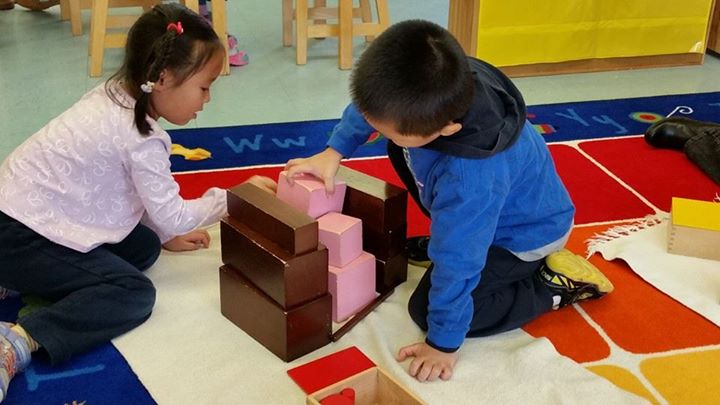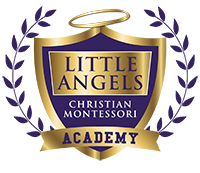
OUR PHILOSOPHY
Our philosophy is based upon Dr. Maria Montessori’s vast understanding of children and their natural tendencies to explore and become independent. Children are innately curious about the world around them, and the classroom is a place where the child is able to move freely and choose from a multitude of fascinating materials to interact with, in a peaceful and serene atmosphere. Dr. Maria Montessori believed that all children are unique and learn at their own pace, which is one of the reasons our classrooms have mixed age groups. Children should always have the opportunity to advance and develop according to their pace, and learning should never be stifled just because of age. The mixed ages classroom allows for that progression to occur which is why it is so successful. The younger children are able to look to their older peers for inspiration and help, and the older students are given a chance to teach their younger peers giving them a sense of empowerment and confidence. Maria Montessori believed that instead of forcefully teaching a child, teachers should instead become “directors” and “quietly follow the child” to understand what interests the child and where their strengths and weaknesses lie. By observing the child carefully, our trained Montessori teachers are able to create learning experiences and cater a curriculum based on the individual child to encourage real learning and growth, giving children the ability to be active participants in their educational journey.
About Dr. Maria Montessori
Dr. Maria Montessori began an educational revolution that changed the way we think about children. Maria Montessori was born in 1870. She was the first woman in Italy to receive a medical degree. She worked in the field of psychiatry, education and anthropology. She believed that each child is born with a unique personality and potential and it is the teacher’s job to recognize that unrevealed potential and bring it to a maximum. A child should be free to explore and should have a prepared surrounding to engage in activities that will help in the learning process. She believed with proper guidance and examples, a child will be educated. A child will educate him/herself.
In 1896 Dr. Montessori became a physician. In her work at the University of Rome Psychiatry Clinic, Dr. Montessori developed an interest in the treatment of special needs children, and for several years she worked, wrote and spoke on their behalf. In 1907 she was given the opportunity to study “normal” children, taking charge of 50 poor children of the dirty desolate streets of San Lorenzo slums on the outskirts of Rome. The news of the unprecedented success of her work on this Casa Dei Bambini (house of children) soon spread around the world. People came from far and near to see the children themselves. Dr. Montessori was astonished as anyone, at the realized potential of these children. She was nominated four times for the Nobel Peace Prize.
The Benefit of Montessori
A Montessori education guarantees the exposure to multifaceted learning, in a carefully prepared environment, derived with the child in mind and framed by adult rationale. Montessori credentialed teachers are trained to introduce your child to the world at hand, allowing his/her remarkable capacity to absorb and learn from the environment. By creating a child driven environment he/she develops a deep love and need for purposeful work, not just to complete the activity but for the love of the activity itself. The child works in order to develop him/her self. By treating the child with mutual respect for his/her individuality as a person, the child will naturally learn to treat and see others in society as individuals, and treat each person with respect. By understanding the child’s extraordinary powers of absorption and learning, Montessori teachers are able to maximize the child’s growth and potential.
